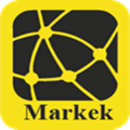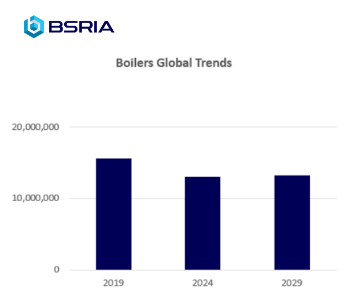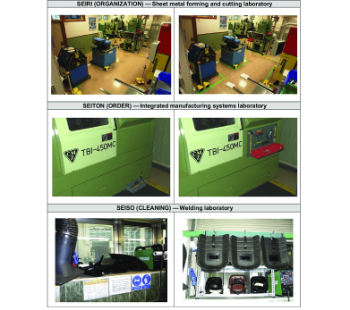About Markekcertifications
I am Sakshi Verma working in Markek International Certifications private limited Company as Business Manager in Gurgaon, India

In today's global economy, breaking into new markets can be a game-changer for businesses. For those eyeing expansion into Saudi Arabia, understanding and obtaining a SASO certificate is crucial. The SASO certificate, issued by the Saudi Standards, Metrology and Quality Organization, is more than just a regulatory requirement—it's your business's passport to the lucrative Saudi market. This certification ensures that your products meet the stringent standards of quality and safety demanded by Saudi consumers and authorities.
Securing a SASO certificate not only facilitates smooth entry into Saudi Arabia but also positions your business as a leader in product quality assurance. This credential signals to your potential partners and customers that you are committed to excellence and compliance. In a competitive landscape, having this certification can set your products apart, offering you a significant advantage over competitors who may overlook this critical step. As we delve deeper into the process and benefits of SASO certification, you'll discover how it can transform your business operations and open up new avenues for growth and success in the Middle East.
Contents |
[edit] Understanding SASO Certificates
The Saudi Standards, Metrology and Quality Organization (SASO) plays a pivotal role in regulating product standards within Saudi Arabia. It ensures that products entering the market adhere to specific quality and safety benchmarks, thereby protecting consumers and promoting fair trade practices. For businesses eyeing expansion into this lucrative market, obtaining a SASO certificate is not just beneficial but essential. The certificate acts as a testament to a product's compliance with local standards, facilitating smoother entry and acceptance in the competitive Saudi marketplace.
A wide range of products requires SASO certification before they can be imported or sold in Saudi Arabia. These include electrical appliances, automotive parts, construction materials, and even toys. Essentially, any product that could impact consumer safety or environmental health falls under the purview of SASO. For instance, an exporter of household electronics must ensure that their products meet SASO's rigorous electrical safety standards to prevent hazards such as fire risks or electrical shocks. By complying with these standards, businesses not only secure their market entry but also bolster their reputation for reliability and safety.
The process of obtaining a SASO certificate involves meeting several key requirements and standards. First, products must undergo testing and inspection by accredited laboratories to verify compliance with Saudi regulations. This often includes assessments related to performance, durability, and safety features. Additionally, manufacturers must provide detailed technical documentation and evidence of their quality management systems. Businesses should also be prepared for periodic audits to ensure ongoing compliance with SASO standards. Navigating these requirements can seem daunting, but achieving local standards compliance ultimately paves the way for business expansion by aligning products with the high expectations of the Saudi market.
[edit] Ensuring Product Quality
Securing a SASO certificate is not just a regulatory formality; it is a testament to a product’s quality and safety that can significantly boost consumer trust. SASO certificates require rigorous testing and adherence to stringent standards, ensuring that products meet Saudi Arabian regulatory requirements. This focus on safety and quality helps businesses maintain high manufacturing standards, leading to superior products that are not only compliant but also reliable and safe for consumers. By obtaining a SASO certificate, businesses signal their commitment to quality, which in turn fosters greater trust among consumers.
The impact of SASO certification on manufacturing processes and quality assurance is profound. Manufacturers are compelled to refine their production methods and implement robust quality control systems to meet the exacting standards set by SASO. This often results in improved operational efficiencies, reduced waste, and heightened attention to detail throughout the production cycle. For instance, a global electronics manufacturer seeking entry into the Saudi market revamped its quality assurance protocols to secure SASO certification. The outcome was a significant reduction in product defects and recalls, ultimately enhancing the brand’s reputation and consumer confidence.
Real-world examples further illustrate the tangible benefits of SASO compliance. Consider a European toy manufacturer that aimed to penetrate the Saudi market. By aligning its production processes with SASO standards, the company not only achieved certification but also experienced a marked improvement in product durability and safety features. This compliance not only facilitated smoother market entry but also resulted in increased customer satisfaction and loyalty. Such case studies underscore how SASO certificates drive businesses to elevate their product quality, resulting in long-term benefits that extend beyond mere regulatory compliance.
[edit] Compliance with Local Standards
Adhering to Saudi Arabian regulations is a crucial step for any business looking to enter or expand in this vibrant market. The SASO certificate plays a pivotal role in ensuring that products meet the local standards set by the Saudi Standards, Metrology and Quality Organization (SASO). This certification process is designed to safeguard consumer safety and enhance product quality, aligning with the Kingdom's rigorous compliance framework. Businesses that successfully obtain a SASO certificate demonstrate their commitment to meeting these high standards, thus paving the way for smoother market entry and increased export opportunities.
To achieve compliance with SASO standards, businesses must first familiarize themselves with the specific requirements applicable to their product category. This involves understanding the technical regulations and quality guidelines established by SASO. The certification process typically includes product testing, factory inspections, and documentation reviews conducted by authorized bodies. Companies should engage experienced regulatory consultants who can navigate these complexities, ensuring that all aspects of the product and production processes adhere to the necessary criteria. By proactively addressing these requirements, businesses can efficiently streamline their path toward certification.
Failing to comply with SASO standards can have significant consequences for businesses. Non-compliance may result in hefty fines, shipment rejections, or even bans from the Saudi market altogether. Such setbacks not only tarnish a company's reputation but also hinder its ability to capitalize on lucrative export opportunities within the region. Moreover, the lack of a SASO certificate can erode consumer trust, as buyers increasingly prefer products that are verified to meet local safety and quality benchmarks. Therefore, investing in compliance is not merely a regulatory obligation but a strategic decision that can safeguard and enhance a business's long-term success in Saudi Arabia.
[edit] Expanding Market Reach
Saudi Arabia's dynamic market offers a wealth of opportunities for businesses looking to expand their global footprint. As the largest economy in the Middle East and a hub for trade and commerce, entering this market can be highly lucrative. However, tapping into these opportunities requires a strategic approach, and one effective market entry strategy is obtaining SASO certification. This certification not only ensures compliance with local standards but also opens doors to a vast network of potential customers who value quality and safety in the products they purchase.
SASO certification serves as a powerful facilitator for market entry and expansion in Saudi Arabia. By meeting the stringent standards set by the Saudi Standards, Metrology and Quality Organization, businesses demonstrate their commitment to quality, safety, and reliability. This commitment is particularly appealing to Saudi consumers and business partners who prioritize high standards. For instance, a European electronics manufacturer that successfully obtained SASO certification saw its market share in Saudi Arabia grow significantly within a year, thanks to increased consumer confidence and a streamlined import process.
Moreover, having SASO-certified products provides a substantial competitive advantage over uncertified competitors. In an increasingly discerning market, consumers are more likely to choose products that have been officially validated for safety and quality. This advantage not only boosts sales but also enhances brand reputation. Companies with SASO-certified products can leverage this status in their marketing and sales strategies, highlighting their dedication to meeting rigorous international standards. A prime example is a home appliance company that used its SASO certification as a key differentiator in advertising campaigns, resulting in a marked increase in brand recognition and customer loyalty.
[edit] Building Consumer Trust
In today's competitive market, establishing a strong brand reputation is crucial for businesses aiming to thrive. A SASO certificate serves as a powerful tool in enhancing a brand's image by demonstrating a commitment to high standards of quality and safety. When consumers see that a product has been certified by the Saudi Standards, Metrology and Quality Organization, they are reassured of its compliance with rigorous quality control measures. This perception of reliability not only elevates the brand's status but also sets it apart from competitors who may lack such certification.
The influence of a SASO certificate on consumer purchasing decisions cannot be overstated. In a market where consumers are increasingly discerning and well-informed, the assurance of quality and safety provided by SASO certification can significantly sway buying behavior. For instance, a manufacturer of electronic appliances with SASO-certified products can appeal to safety-conscious customers who prioritize products that meet recognized standards. As a result, these certified products become more attractive to consumers, leading to increased sales and customer loyalty.
Building trust with Saudi consumers offers long-term benefits that extend beyond immediate sales. By consistently delivering SASO-certified products, businesses cultivate a loyal customer base that values quality and safety. This trust translates into word-of-mouth referrals and repeat purchases, which are invaluable assets in sustaining business growth. Moreover, as consumers in Saudi Arabia become more familiar with the SASO certification process, their confidence in certified brands strengthens, paving the way for enduring relationships and sustained success in the market. Ultimately, investing in SASO certification is not just about meeting regulatory requirements; it's about fostering a bond of trust with consumers that drives long-term business prosperity.
[edit] Streamlining Export Processes
Obtaining a SASO certificate can significantly streamline the export process for businesses entering the Saudi market. One of the primary advantages is the simplification of customs clearance procedures. With SASO certification, products are pre-verified to meet Saudi Arabian standards, allowing for a more efficient and expedited entry at the borders. This preemptive compliance not only reduces the time spent in customs but also minimizes the potential for shipment rejections or additional inspections, thereby facilitating smoother logistics operations.
Moreover, SASO certification plays a crucial role in reducing trade barriers and delays, which are common hurdles in international trade. By adhering to the rigorous standards set forth by the Saudi Standards, Metrology and Quality Organization (SASO), businesses can effectively eliminate uncertainties associated with regulatory compliance. This proactive approach helps prevent costly interruptions and ensures that products reach their destination on time, maintaining supply chain reliability and customer satisfaction. For example, companies that have embraced SASO certification have reported a noticeable decrease in shipment hold-ups and an increase in timely deliveries.
To achieve efficient export operations, businesses should adopt a strategic approach to obtaining SASO certification. This involves integrating compliance into their production processes from the outset, ensuring that all product specifications align with SASO requirements. Additionally, collaborating with experienced regulatory consultants can provide valuable insights into navigating the certification process and identifying any potential challenges early on. By doing so, exporters can optimize their operations, reduce overhead costs associated with delays, and ultimately enhance their competitive edge in the Saudi market. These strategies not only facilitate smoother exports but also contribute to a more robust and sustainable presence in the region.
[edit] Gaining a Competitive Edge
In today's global market, distinguishing your business from the competition is crucial. Obtaining a SASO certificate can be a strategic move that sets your products apart from those of uncertified competitors. When consumers in Saudi Arabia are presented with a choice, they are more likely to select products that have been certified for quality and safety, knowing these items meet rigorous national standards. This certification not only enhances your brand's reputation but also signals to potential buyers that your company is committed to delivering superior products that align with local expectations and regulations.
Leveraging SASO certification in your marketing and sales strategies can further amplify this competitive advantage. Highlighting your compliance with SASO standards in advertising campaigns or during sales pitches can instill confidence in your target audience, showcasing your commitment to excellence. By integrating the SASO certificate into your brand narrative, you make it a powerful selling point that resonates with discerning consumers who prioritize safety and quality. This approach can lead to increased market share and customer loyalty, as buyers are more inclined to trust and invest in certified brands.
Consider the success story of a European electronics manufacturer that entered the Saudi market with its range of home appliances. By obtaining SASO certification for their products, they were able to quickly differentiate themselves from local and international competitors who had not pursued certification. The company used this advantage in their marketing materials, prominently featuring the SASO logo on product packaging and advertisements. As a result, they experienced a significant boost in sales and expanded their market presence in Saudi Arabia, solidifying their position as a trusted brand among consumers. This example illustrates how SASO certification can serve as a catalyst for growth and differentiation in a competitive landscape.
[edit] Unlocking Success with SASO Certification
SASO certificates hold the transformative power to elevate your business in the competitive Saudi market. They ensure that your products meet stringent safety and quality standards, enhancing both manufacturing processes and consumer trust. By obtaining a SASO certificate, your business can seamlessly navigate local regulations, streamline export processes, and gain a substantial competitive edge over uncertified rivals. These benefits collectively open doors to new opportunities and growth within Saudi Arabia's burgeoning market.
For businesses aiming to succeed in this vibrant region, pursuing SASO certification is not just an option—it's a strategic imperative. It equips you with the credibility needed to build long-lasting relationships with consumers and partners alike. Embrace the potential of SASO certification to transform your business and secure a prosperous future in Saudi Arabia.
Featured articles and news
Editor's broadbrush view on forms of electrical heating in context.
The pace of heating change; BSRIA market intelligence
Electric Dreams, Boiler Realities.
New President of ECA announced
Ruth Devine MBE becomes the 112th President of the Electrical Contractors Association.
New CIAT Professional Standards Competency Framework
Supercedes the 2019 Professional Standards Framework from 1 May 2025.
Difficult Sites: Architecture Against the Odds
Free exhibition at the RIBA Architecture Gallery until 31 May.
PPN 021: Payment Spot Checks in Public Sub-Contracts
Published following consultation and influence from ECA.
Designing Buildings reaches 20,000 articles
We take a look back at some of the stranger contributions.
Lessons learned from other industries.
The Buildings of the Malting Industry. Book review.
Conserving places with climate resilience in mind.
Combating burnout.
The 5 elements of seiri, seiton, seiso, seiketsu and shitsuke.
Shading for housing, a design guide
A look back at embedding a new culture of shading.
The Architectural Technology Awards
The AT Awards 2025 are open for entries!
ECA Blueprint for Electrification
The 'mosaic of interconnected challenges' and how to deliver the UK’s Transition to Clean Power.
Grenfell Tower Principal Contractor Award notice
Tower repair and maintenance contractor announced as demolition contractor.






















